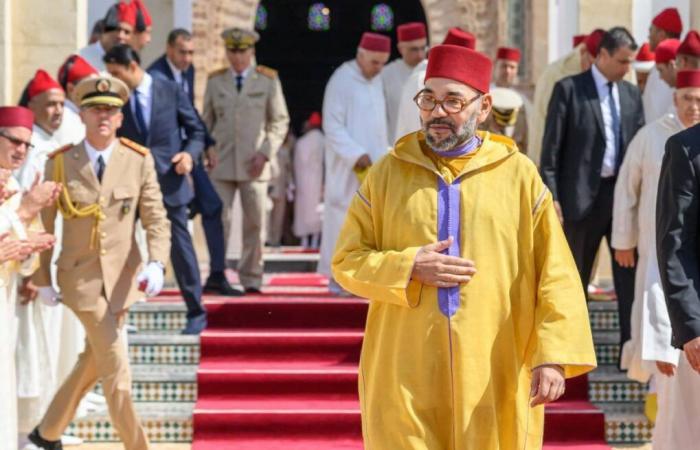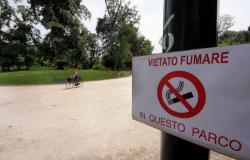King Mohammed VI presided over a working session dedicated to the issue of the revision of the Moroccan Family Code on Monday at the Royal Palace. The reform of the Family Code (Mudawana) initiated by King Mohammed VI is part of the Royal desire to strengthen and consolidate the family cell as a fundamental basis of Moroccan society.
It is also in continuity with the 2004 reform, which marked an important turning point in terms of women's rights and the promotion of their condition, and highlighted the uniqueness of the Moroccan model at a regional and international level. Through this Moudawana 2.0, the Kingdom of Morocco responds to contemporary issues while remaining faithful to the principles of Islam and the specificities of the Moroccan family, respecting the principles of equality, justice and solidarity.
The working session that King Mohammed VI was kind enough to dedicate to the discussion of the revision of the Family Code illustrates the particular importance and high concern that the Sovereign attaches to this issue which concerns all citizens, with the ambition of realize their higher interests and establish solid foundations for the Family as the fundamental nucleus of society.
This working session took place in the presence of the head of government Aziz Akhannouch, whose government will be responsible for presenting the draft law relating to the revision of the Family Code to parliament, after being appointed recipient of the Royal letter on 26 September 2023 relating to the review.
Also taking part in this work session was the Minister of Justice who spoke in his capacity as member of the Authority in charge of reviewing the Family Code and Minister in charge of interacting with the debates in Parliament during the legislative phase; the Minister of Habous and Islamic Affairs in his capacity as member of the Higher Council of the Ulema, responsible for presenting the conclusions of the opinion of the Council in relation to some proposals relating to religious texts; and the Minister of Solidarity, Social Integration and Family, Naima Ben Yahia, of the fact that the debate on the Family Code overlaps with the responsibilities of the ministerial department responsible for the family.
It should be remembered that this work session is the culmination of the process of consultation and broad debate adopted by the Sovereign regarding the revision of the Family Code, a process which has gone through gradual and multiple phases of listening and hearing of all interested parties, developing and adapting the proposals, seeking Fiqh opinion on them and actual arbitrations on some issues raised, before reaching the legislative stage.
This session therefore takes place to close the revision process after the delivery by the Authority in charge of a report of 100 proposals and amendments to the Sovereign and after the King has submitted this document for examination by the High Council of Ulema , which issued an Islamic Sharia opinion on the matter.
The work session also takes place after the Sovereign has made the necessary decisions for the good of the Moroccan family, in compliance with the reference parameters and expected results. This work session was the opportunity for the Minister of Justice to present to the King the approach and methodology that regulated the Authority's activity, in particular in the listening and hearing phase, as well as the proposals submitted to the High Appreciation of the Sovereign and the expected objectives and goals.
For his part, the Minister of Habous and Islamic Affairs presented the conclusions of the Council's opinion concerning some issues relating to religious texts, the subject of the Royal referral to the Council.
The conclusions presented to the High Appreciation of His Majesty the King present the foundations in Sharia of some proposals of the Authority responsible for the revision of the Family Code which give precedence to Maslaha (Interest) and constructive Ijtihad to find innovative solutions to serve of the interests of the Moroccan family and guaranteeing their sustainability, in full compliance with the provisions of the Sharia.
The Sovereign invited the High Council of Ulema to create, within it, a framework responsible for continuing reflection and constructive Ijtihad on the issue of the family, and to deepen research on the problems of Fiqh posed by the transformations that the Moroccan family is experiencing and the innovative responses it needs to accompany social changes.
The creation of this institutional framework aims to keep the door permanently open to Ijtihad in the service of the best interests of the family, in light of the development of society, and so that Ijtihad is no longer occasional or dependent on a Fatwa request addressed to the Higher Council of Ulema.
King Mohammed VI underlined the need for the Head of Government and the ministers concerned to inform public opinion on the revision of the Family Code, as an issue that concerns all fringes and categories of society.
In application of these Royal Guidelines, a statement will be made to public opinion on this topic, to present the general lines of the revision of the Family Code, its different phases, the rules that governed it and their scope.
The High Guidelines concern in particular the fact that the project to reform the Family Code must be permeated by the principles of justice, equality, solidarity and symbiosis deriving from Islam and the international conventions ratified by Morocco.
Breaking news






